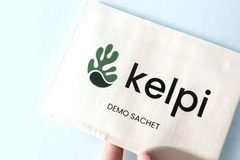Starbucks Japan launches plant-based straws, replacing paper nationwide by 2025

Starbucks has rolled out biodegradable, plant-based straws to stores in Japan, marking another step in the company’s commitment to reducing waste by 50% by 2030. Made from Green Planet, a biopolymer derived from plant oils instead of petroleum, the straws naturally decompose into CO2 and water in marine and soil environments.
The design prioritized customer experience and sustainability. Input from Starbucks partners and customers shaped the durable, smooth and environmentally friendly straws while retaining Starbucks’ green signature color.
Takafumi Minaguchi, CEO at Starbucks Coffee Japan, says: “Without giving up on the balance between a pleasant drinking experience and reducing environmental impact, we introduce our new green straws starting with stores in Okinawa Prefecture, where many iced beverages are served and then gradually expand them nationwide.”
“We will continue to accelerate sustainable actions in our business activities so that more people can resonate with Starbucks’ values.”
Advancing sustainability
 To ensure customers can enjoy their beverages, Starbucks has improved the straw based on feedback.The new Starbucks straws emit less CO2 during their lifecycle than the FSC-certified paper straws currently used, halving the weight of discarded straws from Starbucks locations.
To ensure customers can enjoy their beverages, Starbucks has improved the straw based on feedback.The new Starbucks straws emit less CO2 during their lifecycle than the FSC-certified paper straws currently used, halving the weight of discarded straws from Starbucks locations.
The straws will be introduced in all Starbucks cafés across Japan by March 2025, followed by thicker versions for seasonal Frappuccino drinks in all stores nationwide by early April 2025.
This innovation follows Starbucks Japan’s sustainability journey, which began in 2018 with a transition away from oil-based plastic straws. The company introduced FSC-certified paper straws in 2020, thicker straws in 2021 and expanded to FSC-certified paper cups, biomass-based cutlery for to-go orders and resin cups for in-store iced beverages.
Nearly 200 stores are now certified as “Greener Stores,” meeting eco-friendly retail standards. Additionally, approximately 900 locations recycle coffee grounds, tackling one of the largest sources of store food waste.










